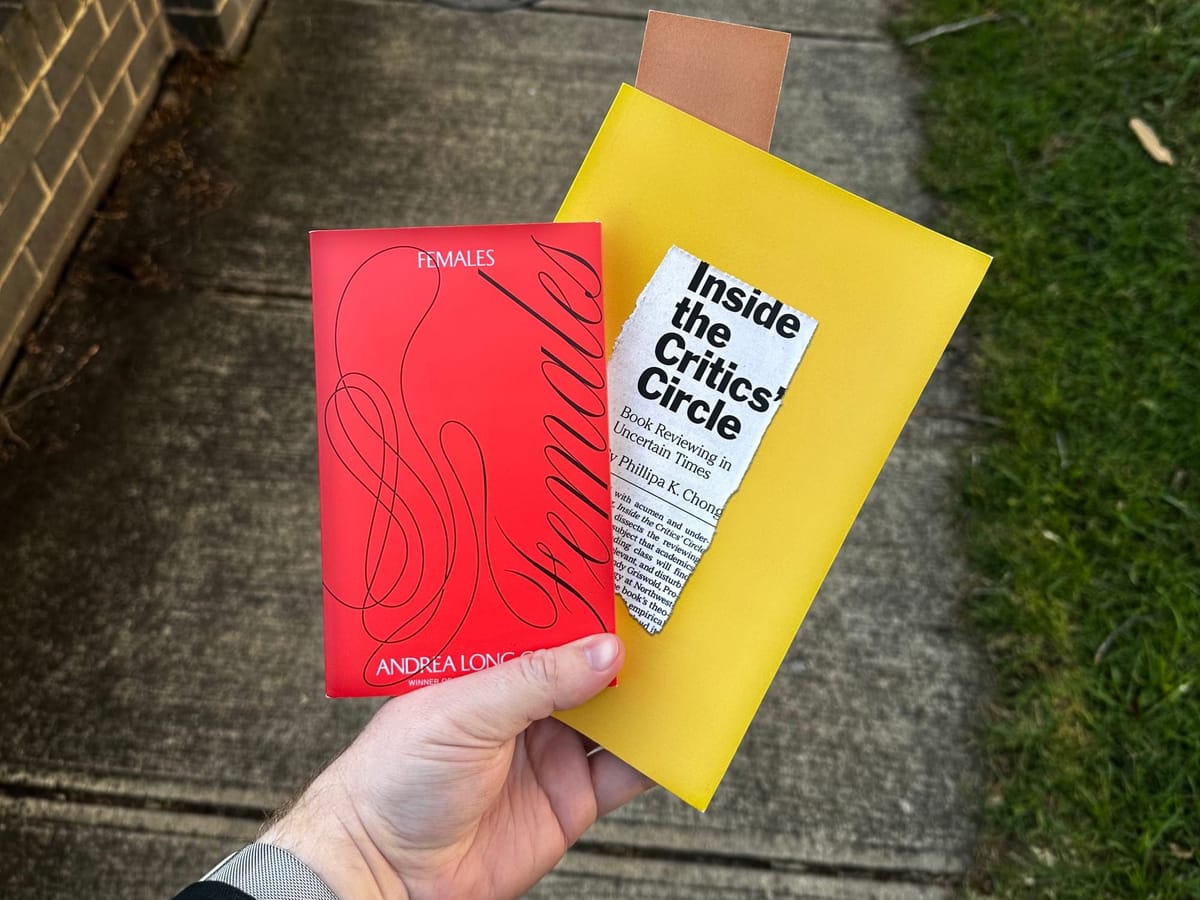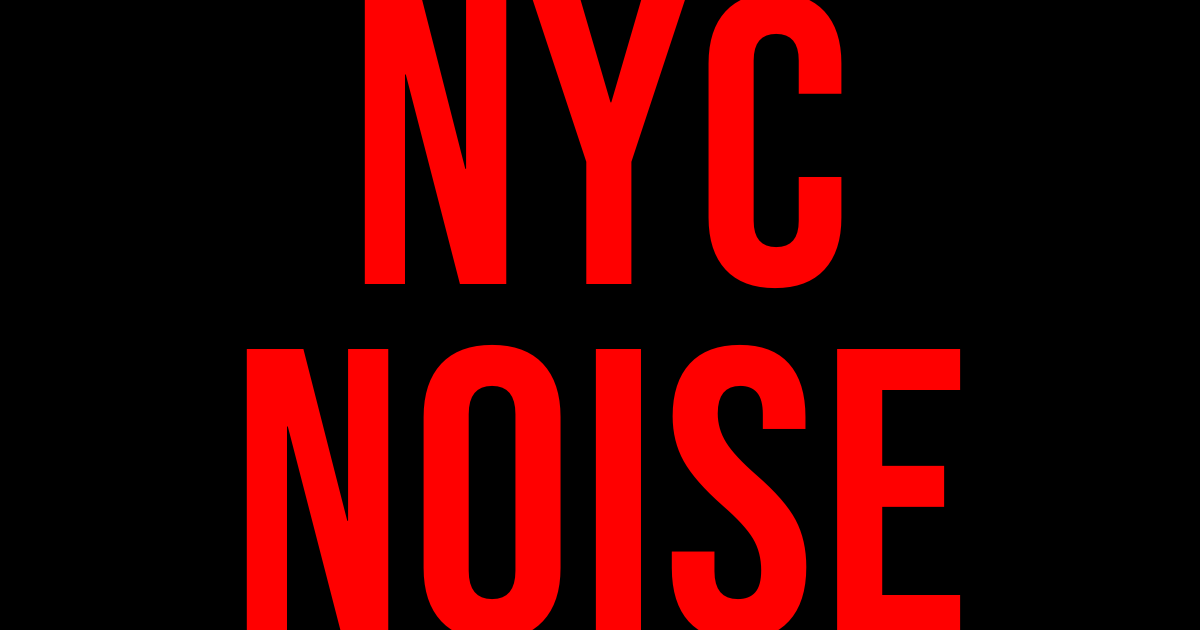16: Messy, Bodily, Persistent
On smelling like sh*t, the death of reading, militaristic theatre, and Nathan Fielder’s ever-brilliant ‘The Rehearsal’.

This week’s news is dreary as ever but I’m holding on to Zohran Mamdani & Antoinette Lattouf’s victories for a modicum of optimism.
Mamdani of course won the Democratic nomination for New York’s upcoming mayoral election while running on a pretty bloody progressive platform. Meanwhile, here in Australia Antoinette Lattouf won her case against the ABC for firing her over a post about the genocide in Gaza.
One of my favourite things about that was the ABC covering it’s own legal troubles with a beautifully unironic detachment:
So, as well as the financial cost, the ABC has damaged its reputation, and public perceptions around its ideals, integrity and independence.
Separately, let’s talk about Lattouf’s fashion choices in the case—brilliant!
It’s also Lorde week what with her latest album Virgin dropping. I’ve not listened yet but early reports say the forecast is looking good. I’ll probably sit down and listen tomorrow and I am -so- excited.
The title of this week’s newsletter is stolen from a gorgeous piece about the popularity of animalic fragrances—it’s a fascinating read on why all the hot girls want to smell like poop at the moment.
You’re reading In the Round, a newsletter with Melbourne theatre reviews, interesting links, and a little artist diary. Published weeklyish by me.

Soldier Boy at Theatre Works was… 🙄.
I just don’t understand what these artists were trying to do by staging the life of Australia’s youngest ANZAC (14, it was the First World War).
To begin with, this is a show which is deeply uncritical of the institutions that enabled a fourteen year old to enlist, uncritical of this child who decided to go to Gallipoli for an ‘adventure,’ and despicably uncritical of the nature of war itself. What is the point in staging work which purports to “offer a fresh, contemporary perspective on the ANZAC legacy” if you’re not going to do anything new beyond trotting out tired appeals that being a soldier is inherently deserving of sympathy.
I just do not care that some fourteen year old died of disease in a trench in Türkiye if you do not care to highlight the fact that Gallipoli was an abject military failure, that contemporaneous ANZACs were busy committing massacres in Palestine, and that this endless worship of the ANZAC myth is the same tired bullsh*t that enables Australia’s ongoing war crimes to go unremembered.
War is senseless and brutal but this show’s focus on some kid who wasn’t meant to be there gets far too distracted by the ANZAC legend to say much of anything. There is nothing to be gained by valorising the ANZAC ‘spirit.’
In saying that, the lighting design was phenomenal—really great.

Hedwig and the Angry Inch at the Atheneum was 🥰. A birthday gift from two of my favourite people, I had a great time. Unfortunately during our matinee we didn’t get Seann Miley Moore as Hedwig but I was still sooooo glad to finally see this st0ry live.

Happy-Go-Wrong by Andi Snelling at 45downstairs is 🤩. You should see it before it closes this Sunday. I wrote a bit about it in my Drama Club.

All is Good… in the Glow of Moonlight was 🧐, but I did enjoy the music and the free shot of vodka I had upon arrival—so that’s great.

Castrati by Kit Spencer at the Pride Centre is 🤯—one of my favourite things I’ve seen this year.
This is a sort of performance lecture detailing the castrati and the historical context which allowed the castrating of boy sopranos to ensure their voices never drop. Spencer contrasts historical accounts of the singers with his own experience as a trans masculine vocalist and performer, braiding the two histories into a hymn to trans beauty and pride.
Kit sings with a stunning hyperpopera accompaniment, plus AV which serve as lecture slides—but layers of glitches and kitsch queer the historical record. It kind of felt like a live video essay, like Philosophy Tube at her most playful and soft.
There’s this spellbinding moment towards the end where Kit blends the past with the present and it is pure magic, y’all. Pure f*cking magic.
There’s only one other session of this show and it is *today* at 2pm—go, if you can.

For a moment there in 2022 I fell down the indie fragrance pipeline, a sensual (if expensive) special interest with such exciting artistry behind it. I never got super into animalic scents (a discounted bottle of Bat by Prin Lomros(!) excepted), but they definitely fascinated me—from afar.

So this think-piece on the appeal of animalic, or more specifically fecal fragrances, was pretty interesting. Chatting to a perfumer about it all Em Seely-Katz writes:
Aftel explained to me that “in the heavy florals, the putrid part is really what makes the floral part so beautiful. It's very metaphorical of life, how beauty is illuminated by things that are dirty.” If you smell white florals that are missing the poopy funk in the base, … these florals can feel facile and flaccid, almost… sanitized. Like the repellent fumes of a freshly-cleaned toilet bowl, synthetically “clean” scents can feel uncanny—not human.
Seely-Katz theorises that maybe poopy scents are a way of resisting the flattening that algorithms, AI, and other digital detritus does to our lives. That maybe smelling like sh*t is a way to affirm our humanity/animality:
In an age of increasingly digitized experience, poop perfumes are insistently analog. They are messy, bodily, persistent. They cannot be scrubbed from your skin with a browser refresh.
Time to pull out my shoe box of perfume samples again, I think.

Literacy crisis! Literary crisis! Literally crisis!

I enjoyed this speculative analysis of where AI could take our literary culture. Joshua Rothman reflects on his experiences reading deeply and widely, and what he makes of AI’s effect on the value of the written word:
Still, I can’t help wondering if the intrinsic integrity of writing might prove to be less powerful than it seems. There was a time when it was hard to imagine that whole songs might someday be composed around, or of, samples; today, sampling is unremarkable, and we perceive the fluidity of musical production as a feature, not a bug. Is it such a stretch to imagine remix culture coming to reading?
It’s a refreshingly un-panicked essay which is mostly curious about where we’ll all end up.
The people who actually read “originals” will be rare, and they’ll have insights others lack, and enjoy experiences others forgo—but the era in which being “well-read” is a proxy for being educated or intelligent will largely be over. It will be difficult to separate the deep readers from the superficial ones; perhaps, if A.I.-assisted reading proves useful enough, those terms won’t necessarily apply. Text may get treated like a transitional medium, a temporary resting place for ideas. A piece of writing, which today is often seen as an end point, a culmination, a finished unit of effort, may, for better and worse, be experienced as a stepping stone to something else.
Definitely not ideal; but maybe the sky isn’t outright falling.

This is the review that got me to watch Nathan Fielder’s The Rehearsal (which you also should watch).

Alexandra Tanner pulls out the themes of Fielder’s entire body of work—revealing him as an artist concerned deeply with how much we can fully know others, and more importantly ourselves.
“When you practice being other people for long enough,” Fielder says in a sad voice-over, “you can forget to learn about yourself;” in his delivery he emphasizes the word can, transfiguring a melancholy admission into a kind of flex, or a kind of punchline: like he’s saying Duh; Haha; No wonder; Oh sh*t; How do I land this thing? You can reach the middle of your life and realize that you don’t know yourself; that there might be no self to know. There’s no self, and this is tragedy; there’s no self, and this is comedy.
I’m a couple episodes into season two of The Rehearsal and am very excited to see how it comes together. I was struck by how implicated he becomes in his own experiments—it’s a beautifully messy way of learning about yourself (which also makes for great TV).
There might not be a self, and yet we can be nothing but it. If only the circumstances were perfect, we think wishfully—if only we had access to certain resources—we could become anyone; when Fielder dispatches those resources in service of others’ becomings (to say nothing of his own), this wish reveals its childishness. We are assemblages of traits and tics that we did not choose for ourselves; we are, nonetheless, responsible for all of it. “Self-criticism,” writes Phillips, “can be our most unpleasant—our most sadomasochistic—way of loving ourselves.”
Would love to chat to you about The Rehearsal if you’ve watched it!

- A website designed for protesters in LA which uses facial recognition software to identify members of the LA Police Department.
- I used to be a voracious poster on forums dedicated to things like the Olympic Games and Minecraft so I found myself very nostalgic reading this fascinating piece about the internet of yore, of forums and e-signatures and the kids let loose on them.
- An electrifyingly scathing review of Benson Boone’s latest album. “I wonder if [Tame Impala] is haunted by the bouncy bassline of Boone’s “Mystical Magical,” not unlike how J. Robert Oppenheimer is haunted by his actions.”
- Turns out Hinge’s CEO reconnected with the love of his life via an interview with the New York Times.
- Social media used to mean a democraticiation of information, and it’s very much not that anymore—what next?
- An obituary for Pocket, one of the web’s old read-it-later services, and what it means for how we read the internet of today. A definite sad day as I used to be a user in 2011 or so, but I’ve since moved on to apps like Reeder to save my links.

I have been reading Inside the Critics’ Circle by sociologist Phillipa K Chong which is a dense and academic bit of research into novel reviewing. I’m quite enjoying it and am taking a lot of little thoughts away on how to approach writing about theatre—lo and behold all my thoughts on reviewing are remarkably unoriginal. Still, it’s very validating to see it all written down.
I also loved this (deeply) critical review of Chong’s book, if only for the fact that it’s a review of a review of reviewers reviewing reviewing. The review is (I’d say) deeply unfair and evident of the writer’s decision not to engage earnestly with Chong’s writing. I imagine that upon reading it she had a lovely chuckle about being on the other side of the review.

Otherwise I’ve spent the week doing some bits and bobs for upcoming Fringe shows, and agonising over applying for jobs/waiting to hear back after interviews. Job-hunting is a profoundly dissastisfying experience y’all!

I’ve long been a fan of Partiful to organise parties and events.
It’s a gorgeous little weird app which meant I didn’t have to use Facebook Events anymore, truly one of my favourite bits of tech from the past couple years. BUT, as is becoming far too common, it turns out it’s run by a bunch of folks who are connected to Palantir, a US tech company building software to facilitate Israel’s genocide in Gaza + tracking tools for the Trump administration. 🤮

So I’m wondering, dear reader, how are you hosting and inviting people to events? I’d love new solves which don’t make me complicit in genocide.
To leave a comment and support my writing, consider subscribing. You’ll get a weekly round-up of the art I’m making, seeing, & reading delivered straight to your inbox—just like this one.





